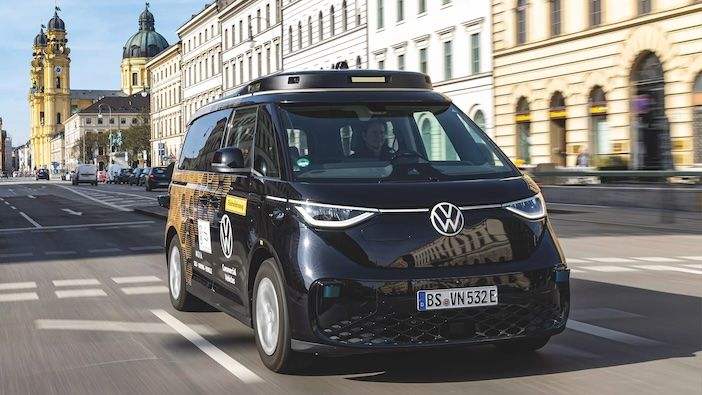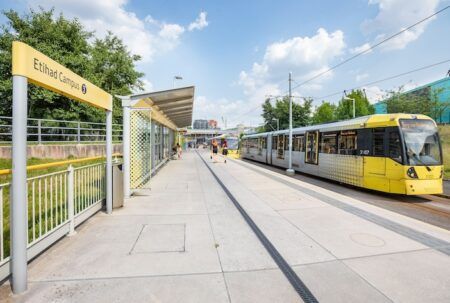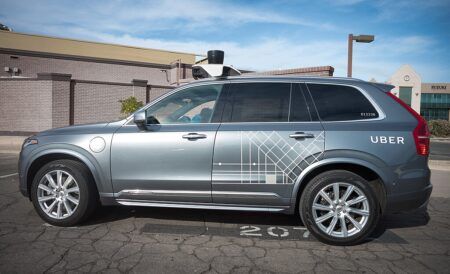An update on the Alike vehicle pilot project currently underway in Hamburg, Germany, that has 120 electric, autonomous shuttle buses offering public services across the city, with plans to grow the number in operation to 2,000 by the end of the decade
The city of Hamburg in Germany is at the forefront of a public transportation revolution with a bold vision to integrate thousands of autonomous vehicles into its public transit network over the next few years, in a new project named Alike.
Hamburg is already running a pilot with 120 autonomous electric vehicles providing on-demand rides throughout the city. But the ambitious plan is to scale up rapidly with 800 such vehicles by 2027 and 2,000 by the end of the decade.
The system meets strict safety requirements and is also intended to be scalable across regions, making it also suitable for rural areas. The aim of the pilot project is also to test the acceptance of autonomous driving services in practice.
“For the first time, you will be the pilot of public transport – you will define where the vehicle will go”

“We are now at the threshold of fully establishing this technology,” says Anjes Tjarks, the city’s Minister of Transport and Mobility Transition. “There is the possibility to revolutionize a transportation system that has been the same since World War Two.”
The Federal Ministry of Digital and Transport is funding the project with an initial outlay of €26 million. It has established a consortium that brings together six project partners: public transit operator Hochbahn; on-demand service provider Moia; vehicle manufacturers Holon and Volkswagen Commercial Vehicles; as well as the Karlsruhe Institute of Technology (KIT) as research partner and the Hamburg Authority for Transport and Mobility Change (BVM).
KIT’s Institut für Verkehrswesen (ifV – Institute of Transportation) will research the social acceptance of autonomous shuttles. “Alike brings together very different project partners with their respective strengths. For the first time, transport companies, ridepooling providers, vehicle manufacturers and experts from science and politics are working together to advance the topic of autonomous driving,” says Henrik Falk, CEO of Hochbahn. “The goal is a mobility solution that can be expanded and transferred to other cities and regions. There’s no comparable model anywhere in the world for such a holistic system.”
In the system passengers are no longer constrained by fixed routes and schedules. “For the first time, you will be the pilot of public transport – you will define where the vehicle will go,” says Tjarks. “So transit becomes flexible.”
And Tjarks envisions use cases growing. “There might be situations that some people feel unsafe on public transport, for example, women traveling at night,” he says. “If you have 1,000 vehicles running in public transport, you can make some of them women only.”
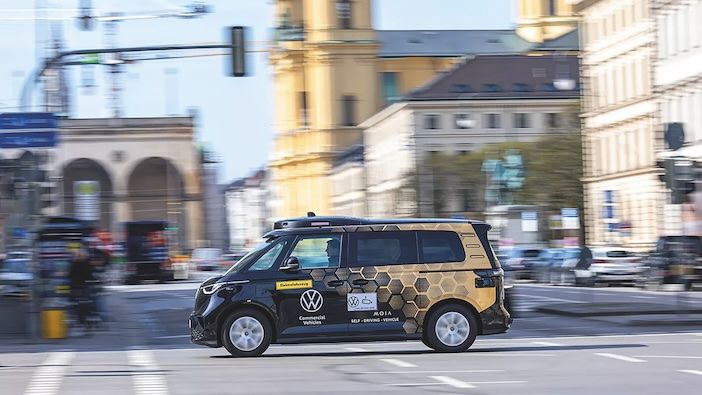
The economic case is also compelling. While a single autonomous ride currently costs around €1.20 per kilometer, simulations show the per-kilometer cost could drop to just €0.40 with a 2,000-vehicle fleet – comparable to taking a private car. “This is very interesting if you want to enhance public transport in areas with lower population density,” says Tjarks.
With around 800,000 cars already on the streets of Hamburg, many would question whether the solution to too many cars is more cars. However, Tjarks argues that calculations show that one on-demand autonomous vehicle can do the work of 10 private cars, meaning overall fleet growth will be slowed.
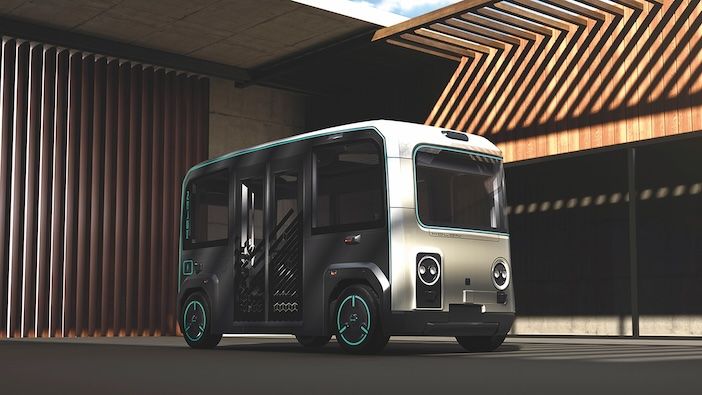
“The question is do we get there?” says Tjarks. “It’s not just about deploying invitation. You also need to also have push factors. I think the idea of completely integrated ticketing systems is one way to do this.”
In Germany integrated public transportation ticketing has already begun with the implementation of Deutschlandticket, which enables citizens to pay one monthly subscription for travel on local trains anywhere in the country. The vision is that other services – including autonomous shuttles – could be added to this service.
“Traffic in Germany will increase, which is why we need new, smart forms of mobility,” says Volker Wissing, federal minister for Digital Affairs and Transport. “Autonomous driving can be a key to relieving congestion in major cities while ensuring door-to-door mobility. I am delighted that in Hamburg we have found a courageous partner who is open to innovation in order to establish autonomous driving in Germany. I am convinced that this good idea will be accepted by the people of Hamburg and will find many imitators.”
This feature first appeared in the June 2024 edition of TTi magazine


